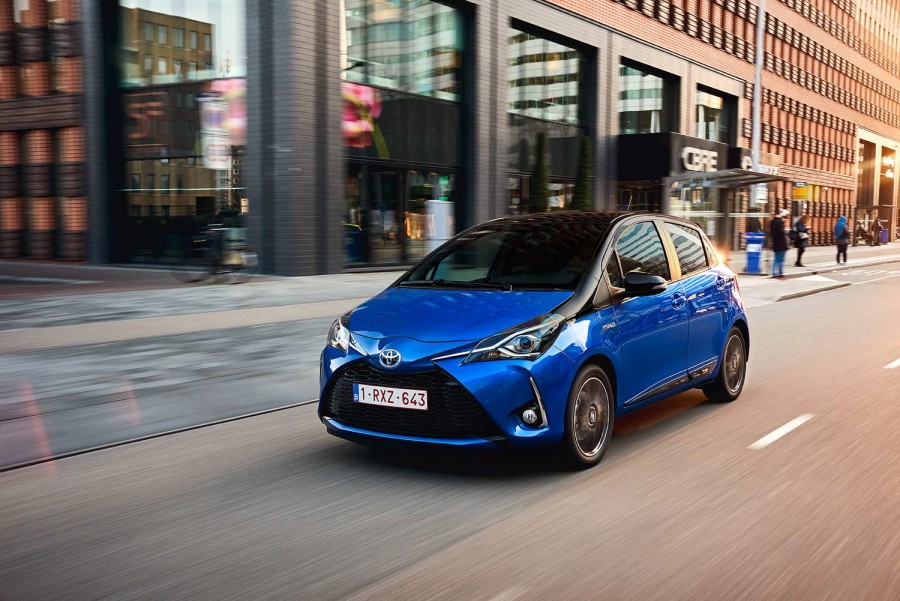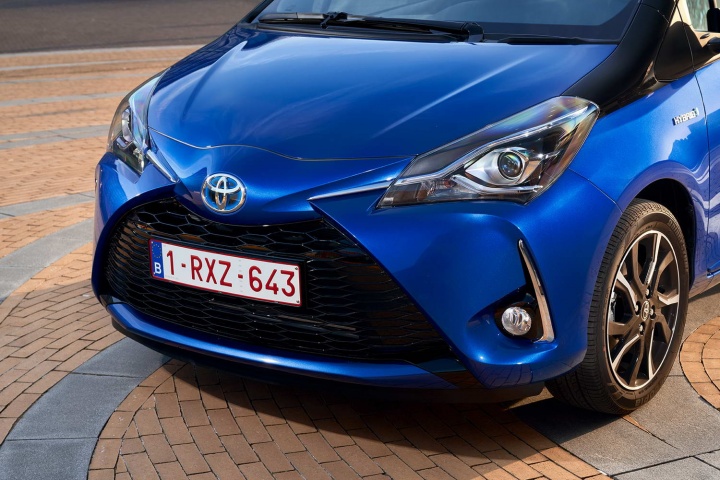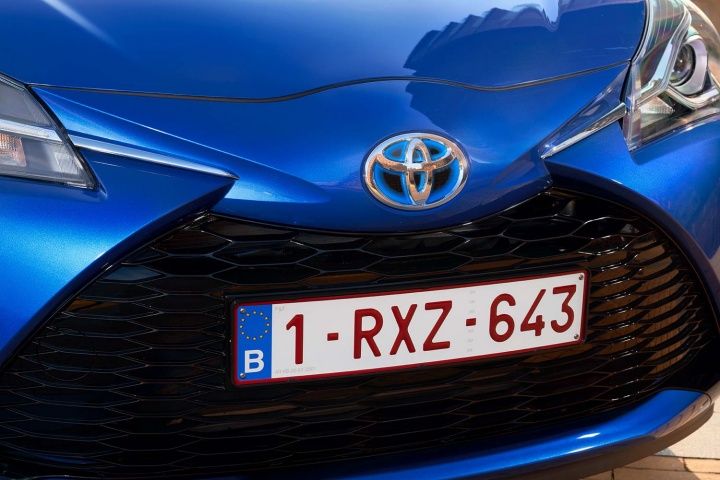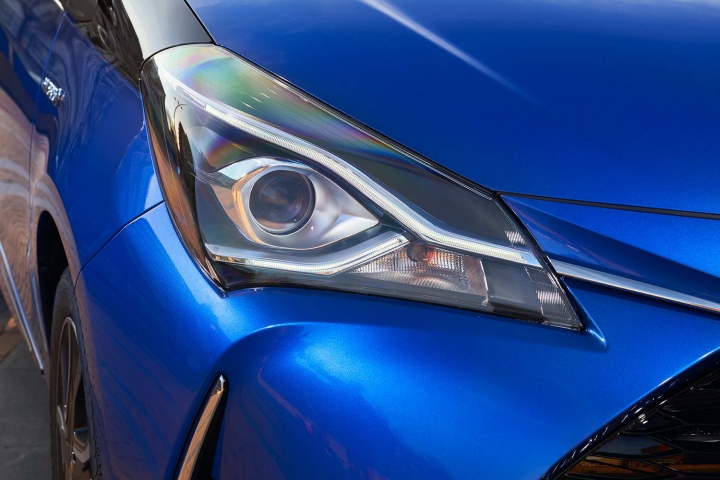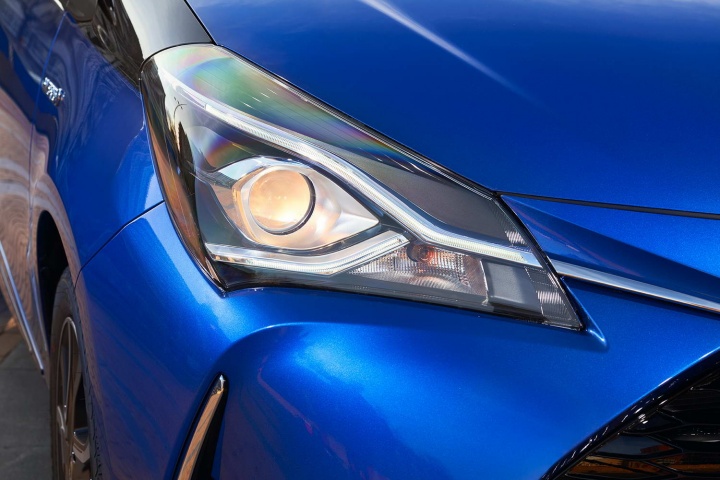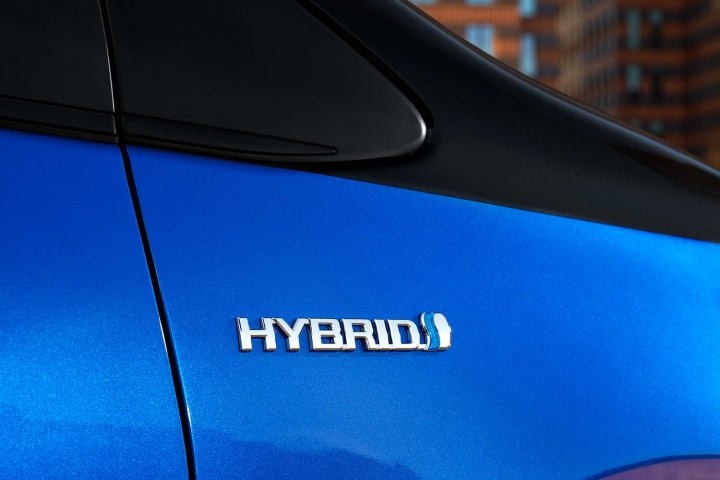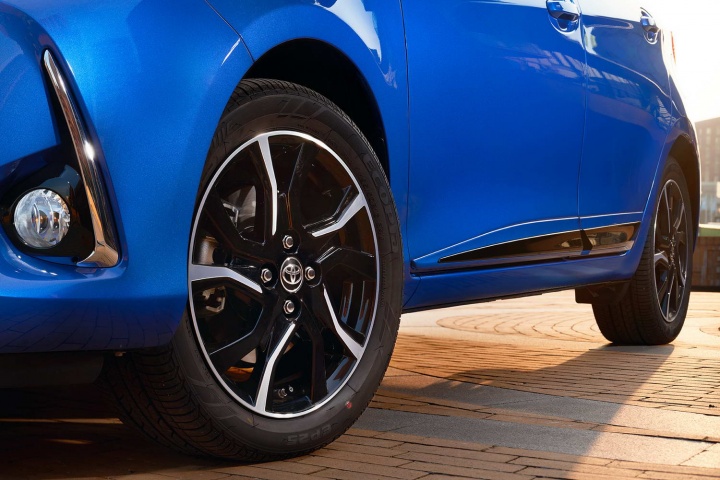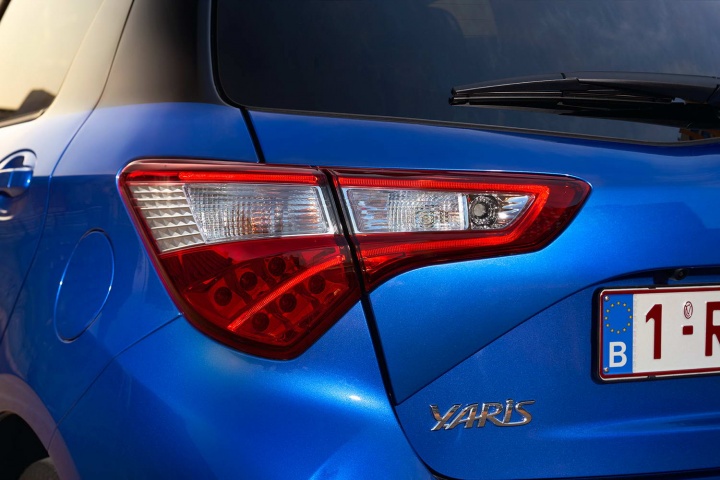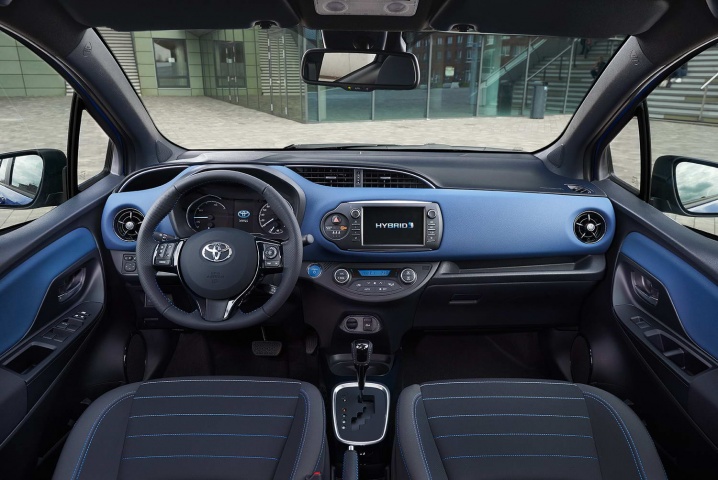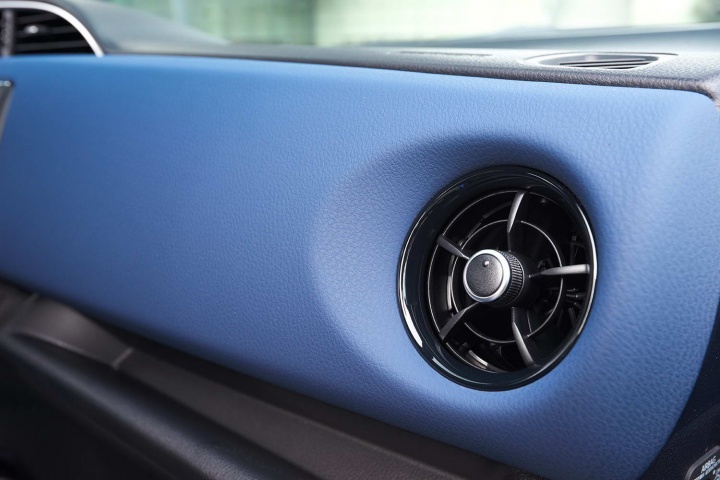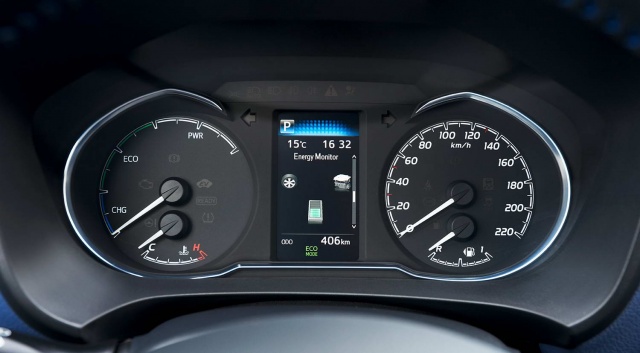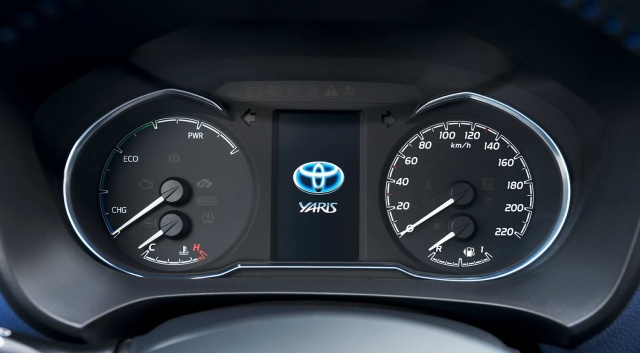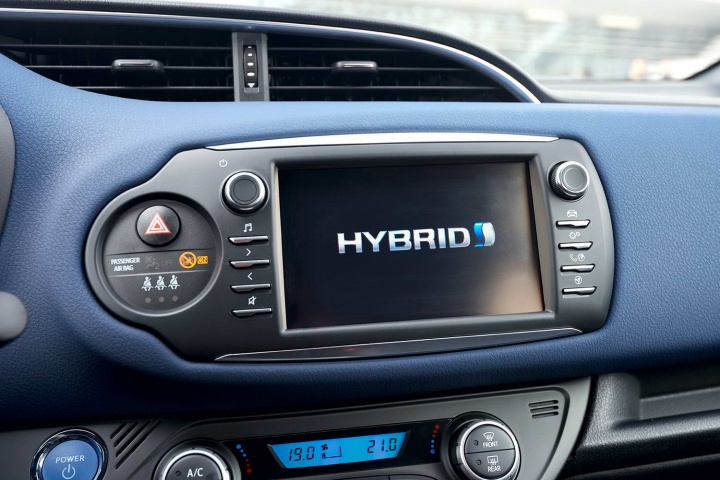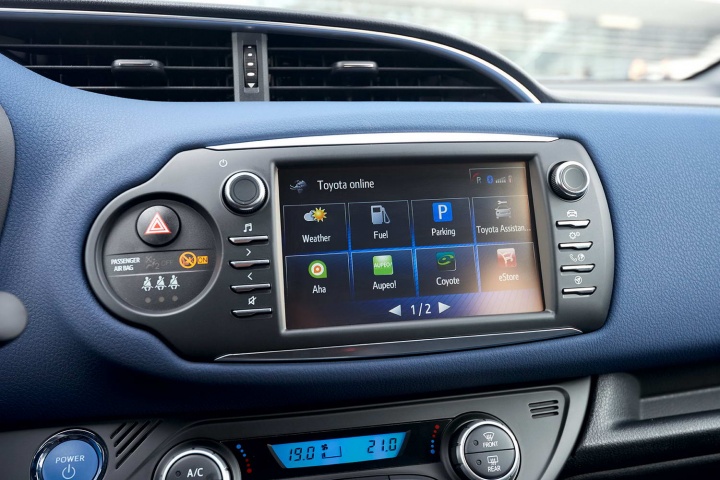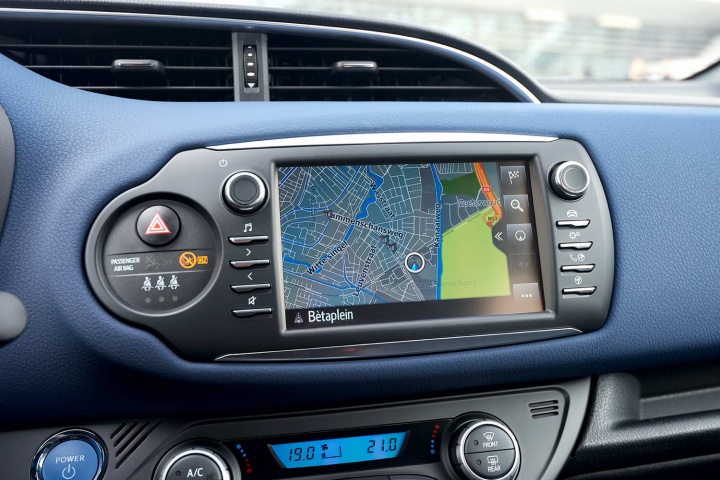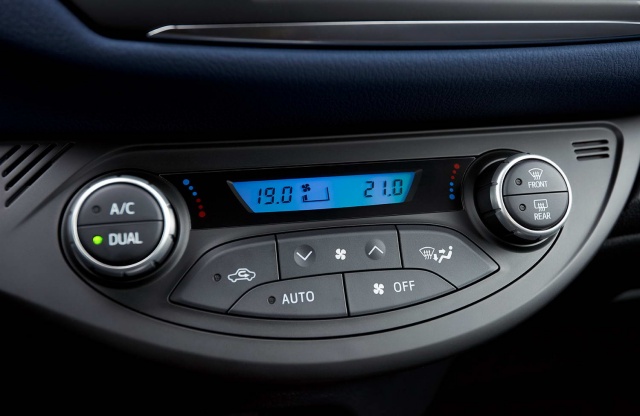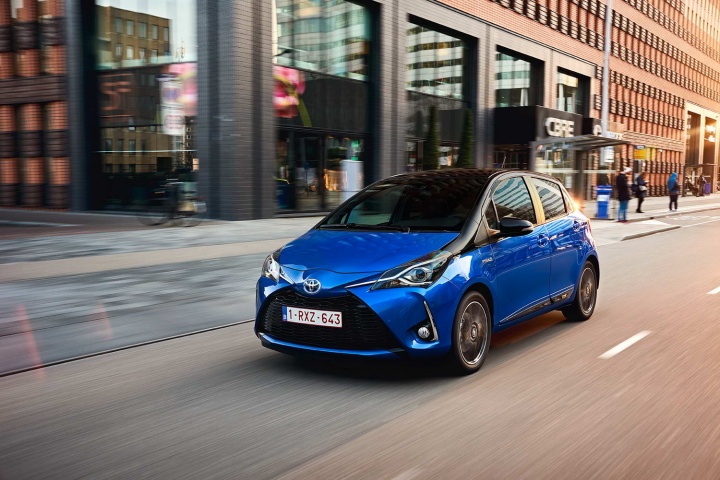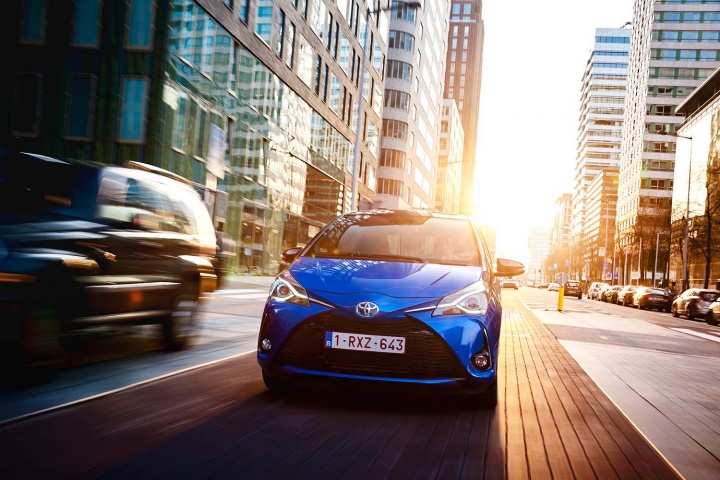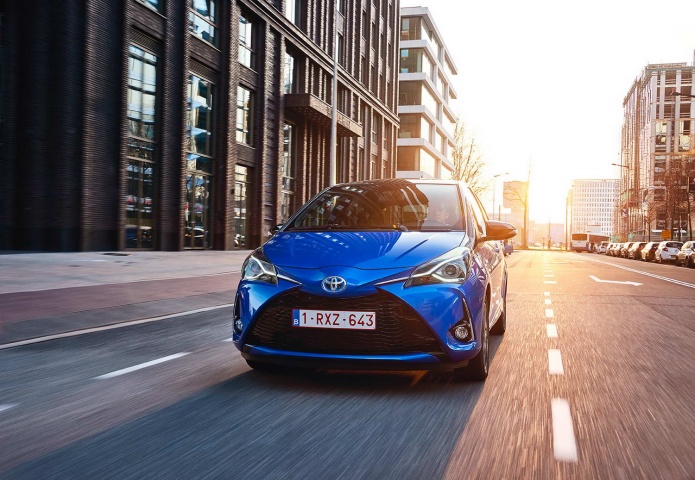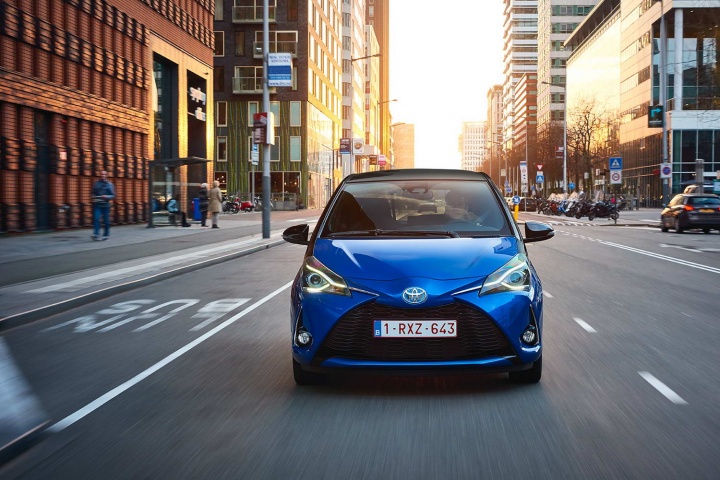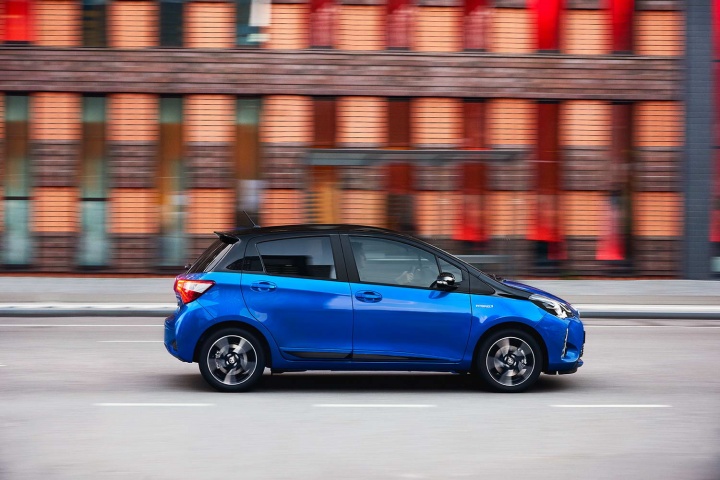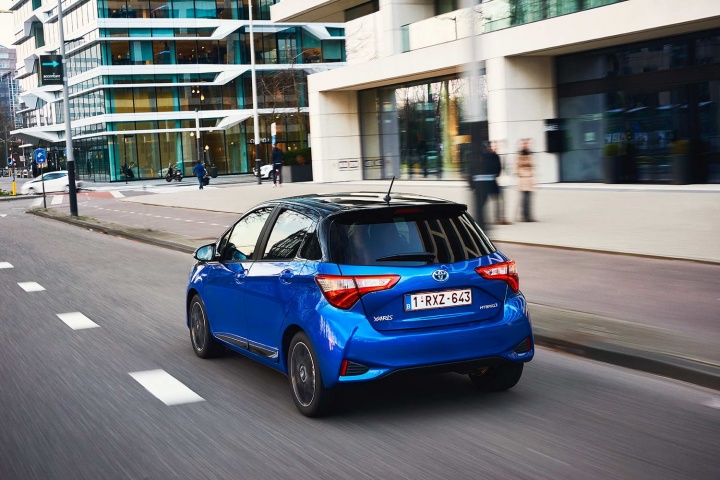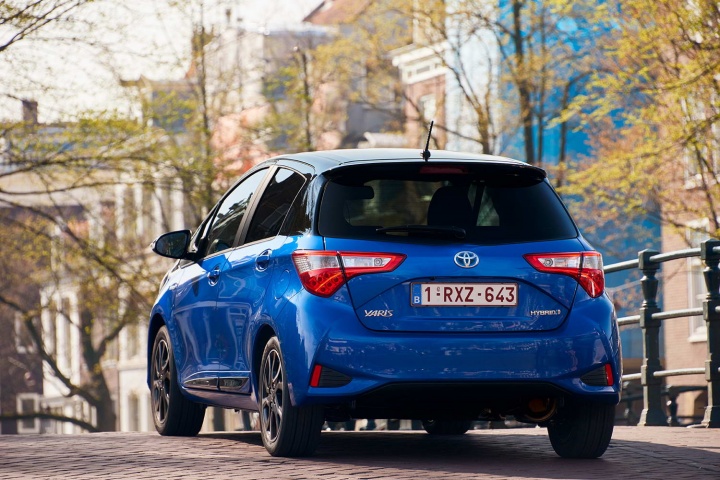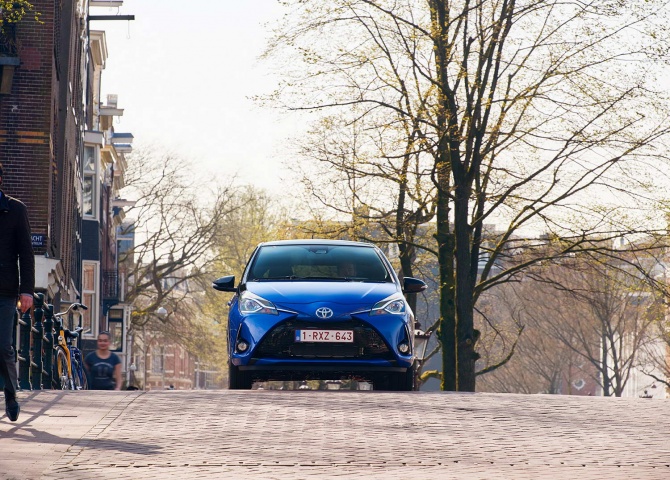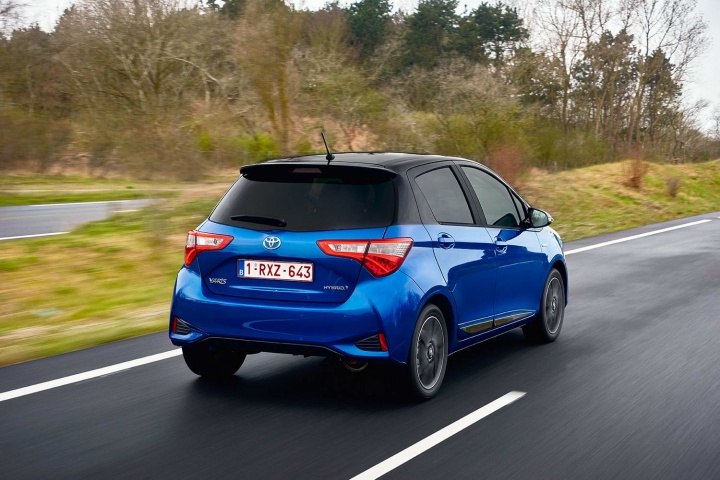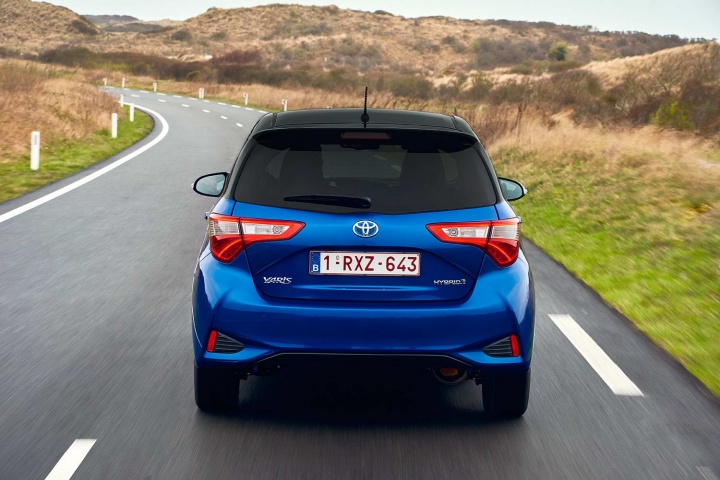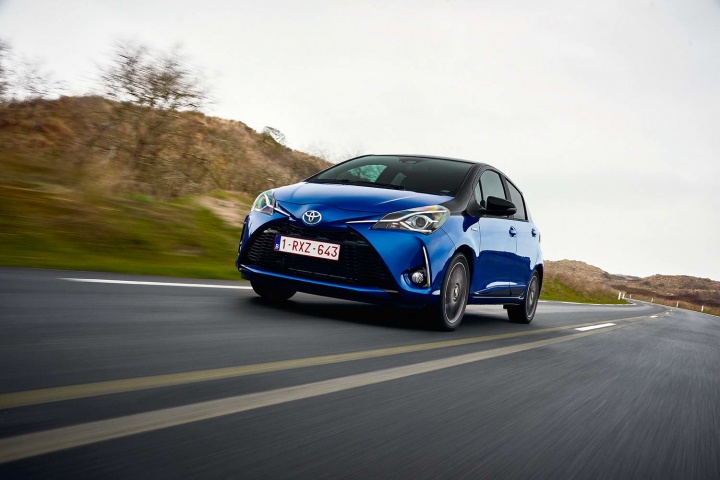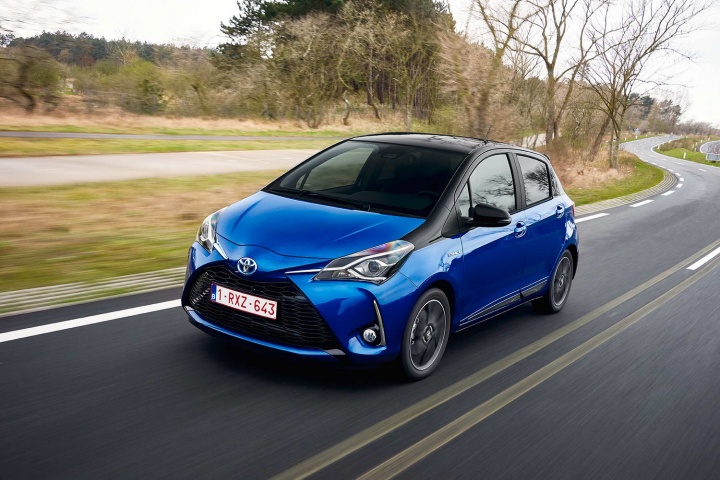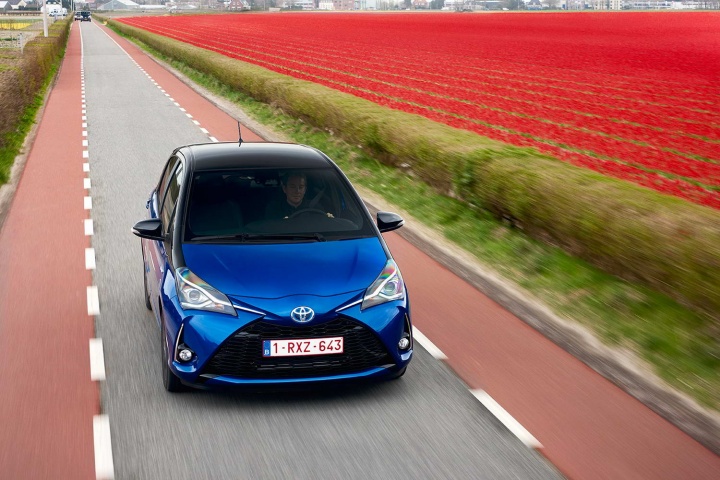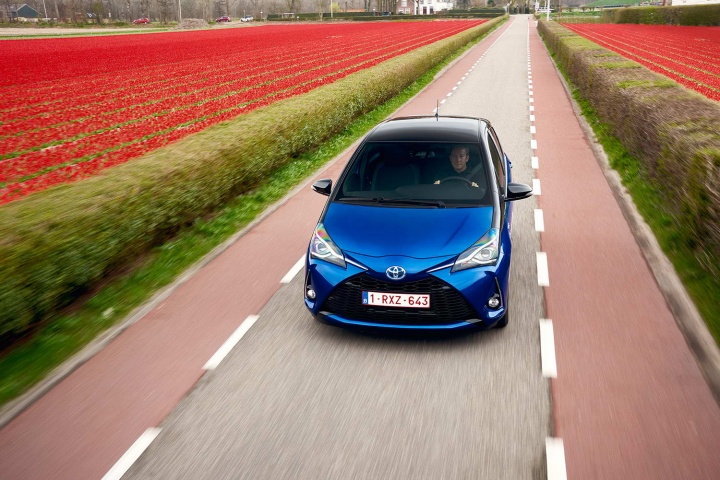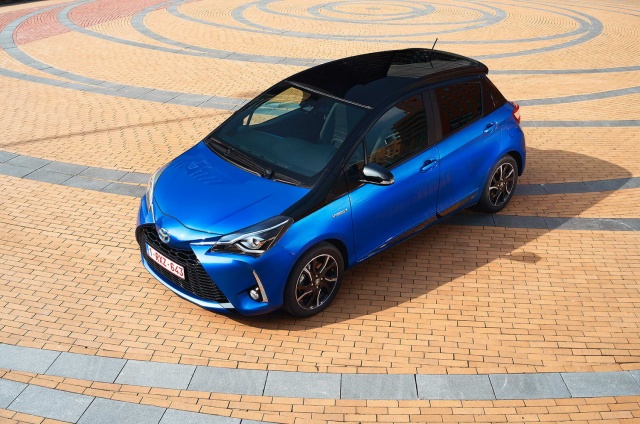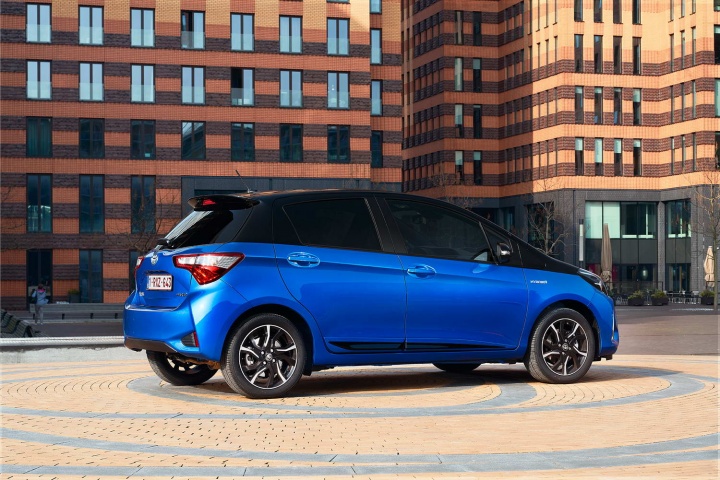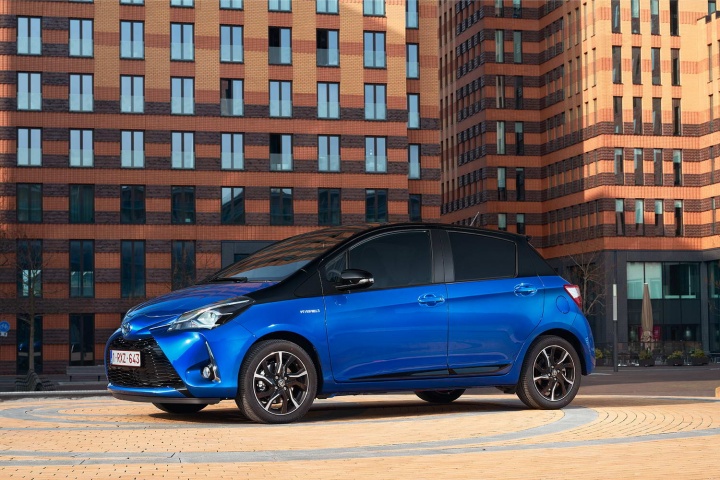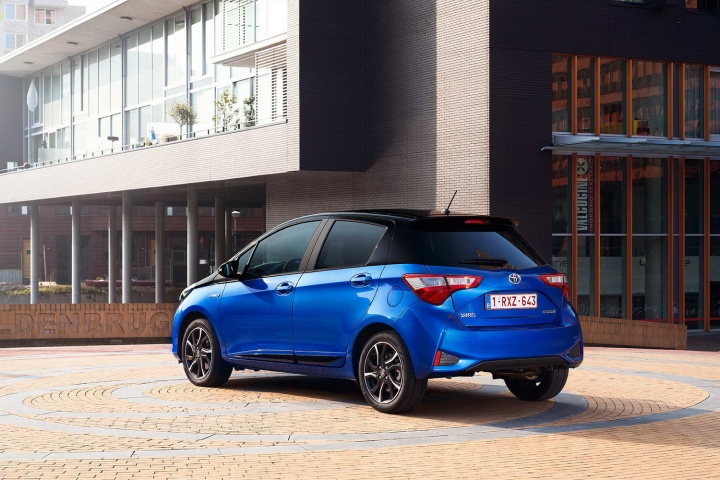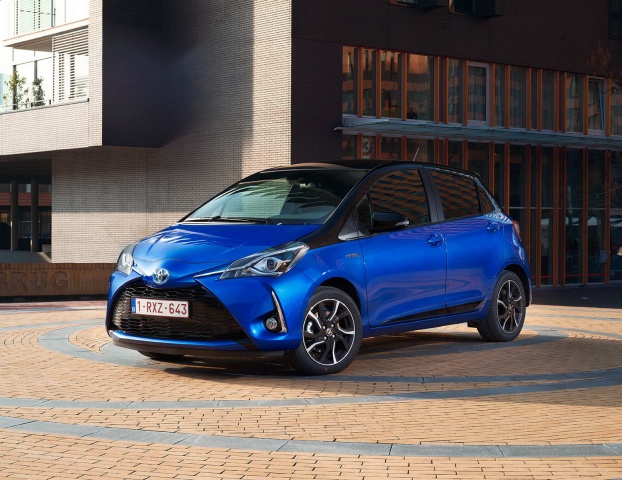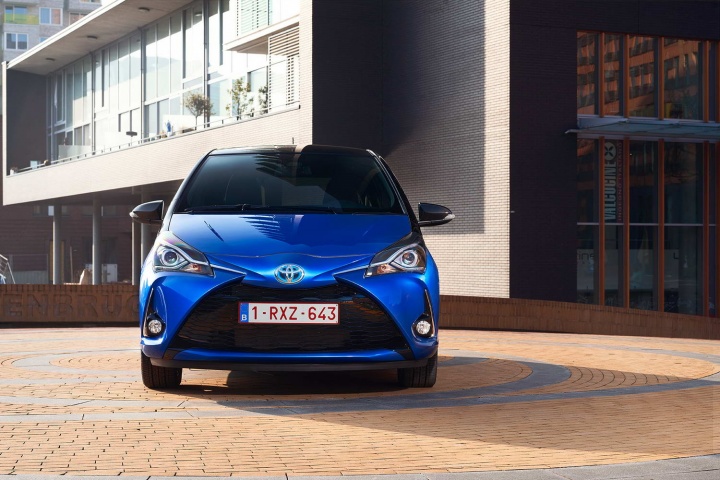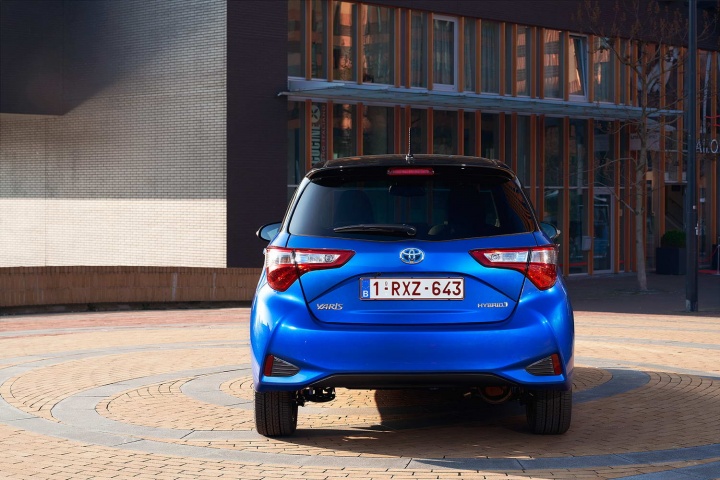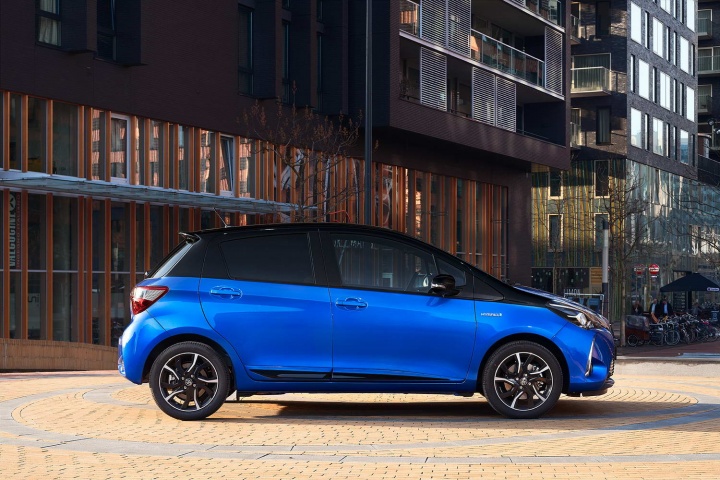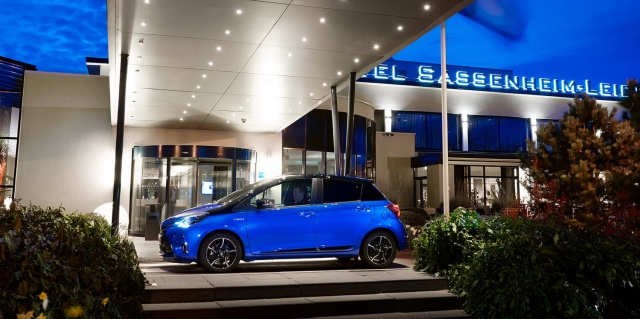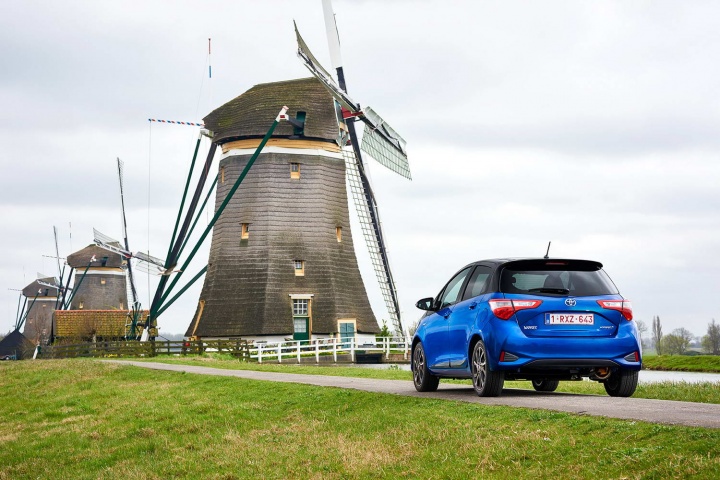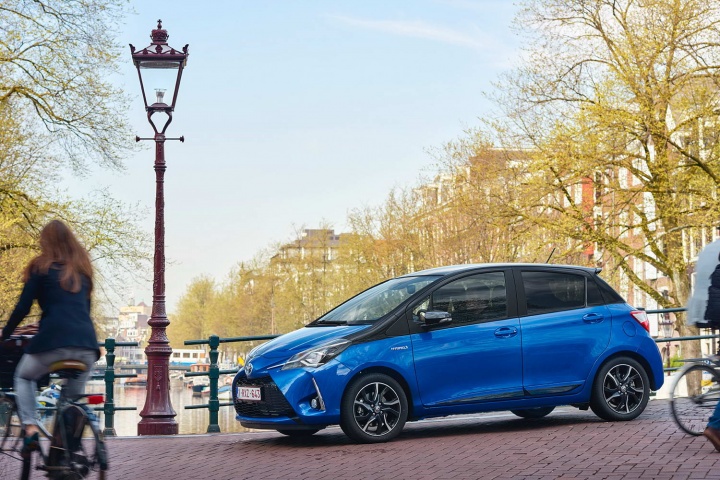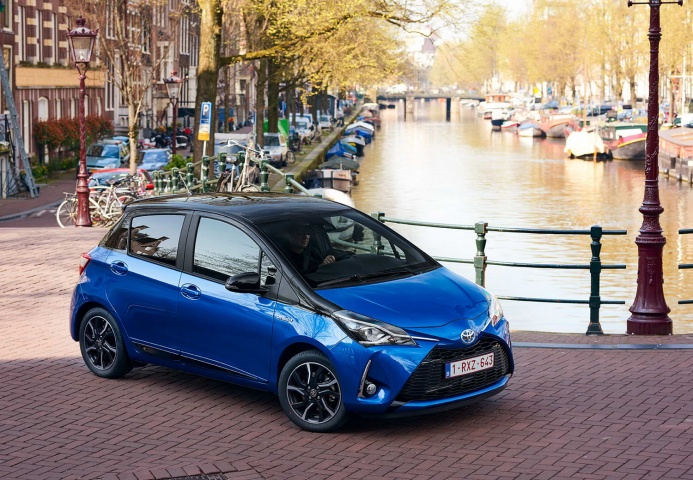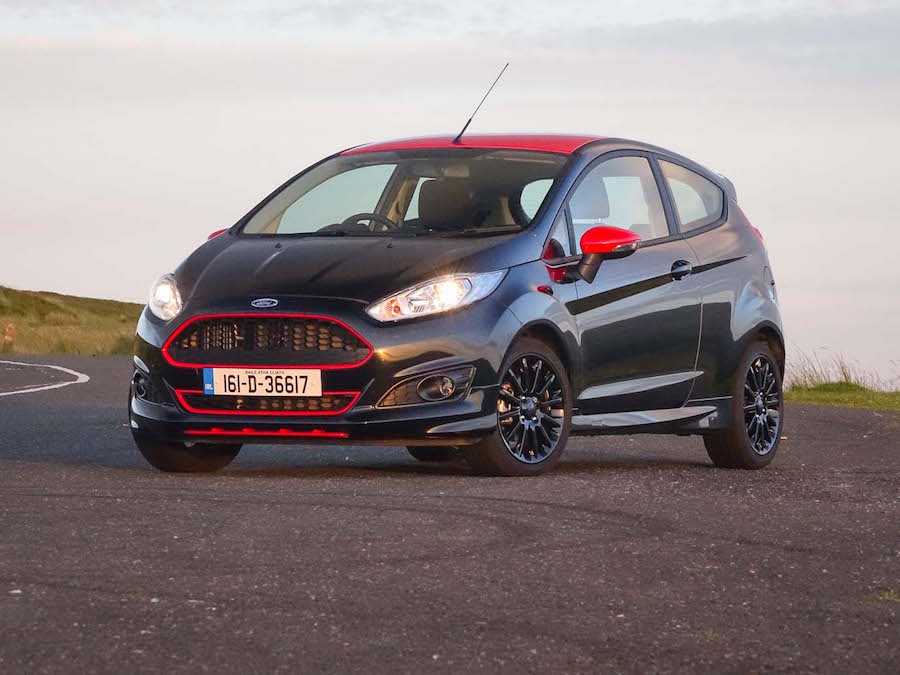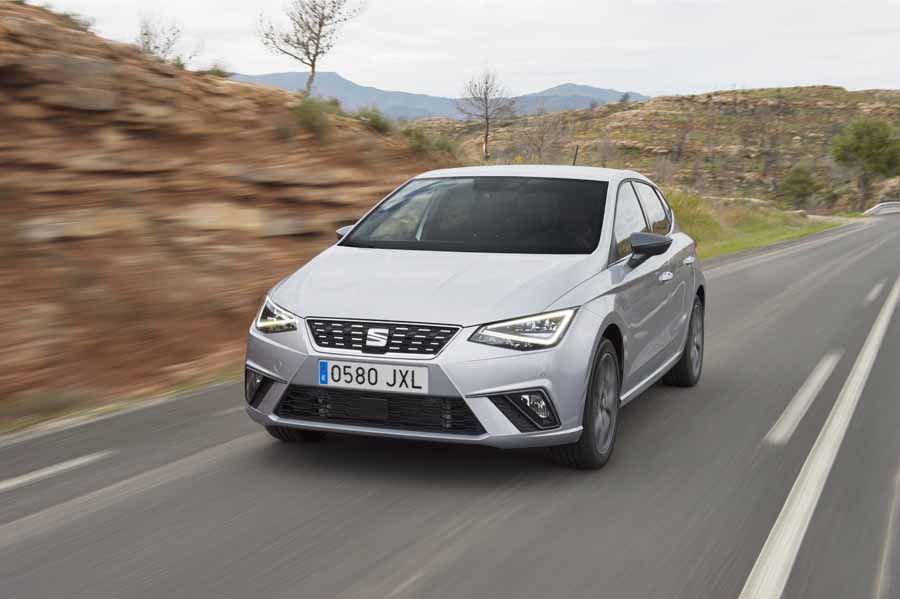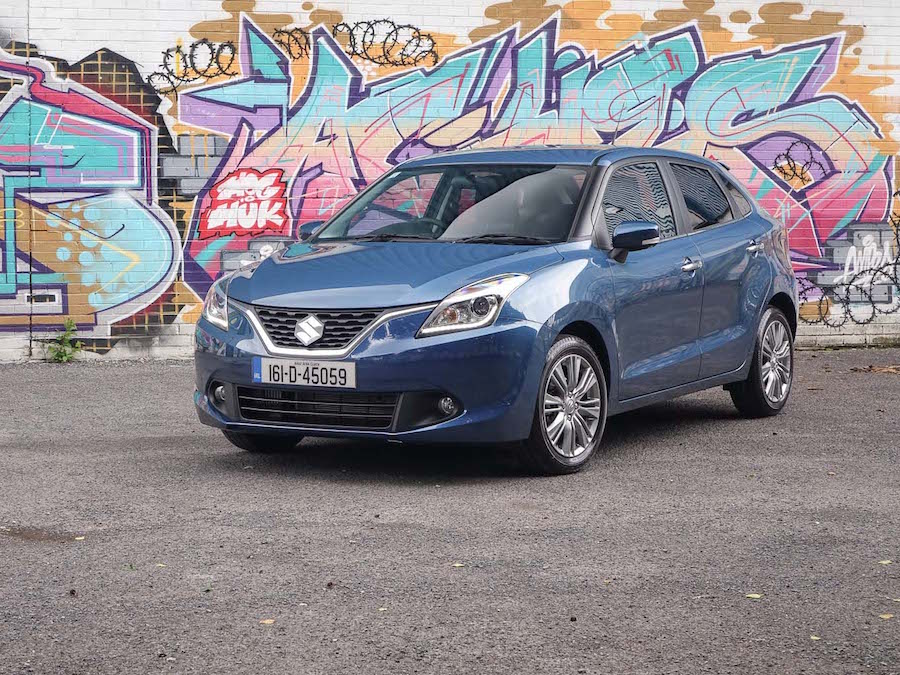The Toyota Yaris hatchback range has received an exterior makeover, but the Yaris Hybrid has also come in for some mechanical updates to better its ride quality and refinement. We find out just how much has been improved.
In the metal
This is, in fact, the second time that the Toyota Yaris has received a substantial visual update. The new look focuses mainly around the front where more distinctive headlights help shape the car's new face. These include a new daytime running light signature that extends out from the unit into the front grille.
Improvements to the interior include an updated dashboard that more neatly integrates Toyota's latest infotainment system. The instrument cluster has also come in for an upgrade with the introduction of a 4.2-inch colour TFT display, like that seen in the larger Avensis and Prius models. This provides the driver with additional driving data as well as turn-by-turn navigation messages and a variety of other secondary information. The rest of the layout and design is as it was previously, but Toyota does now offer a wider range of colour combinations for the cabin.
Rear passenger space is good for the segment and is helped further by the flat rear floor leaving a bit more foot room for the middle occupant than in most cars in the class. Toyota says it has also revised the ISOFIX anchor positioning to make it easier to fit child seats. The downside to the rear is the lack of door bins for storage, and there is just one large cup holder in the centre.
Driving it
In a bid to add further refinement to the Yaris Hybrid, Toyota's engineers have fitted it with new engine mounts to reduce vibration. This modification, combined with a revised suspension setup that includes changes to the dampers, has helped in smoothing out the Yaris Hybrid's ride. Interestingly, the Hybrid is the only model of the Yaris range to get these updates, which is something Toyota claims was needed to satisfy increasing customer expectations as many are downsizing from larger and occasionally more premium cars to the Hybrid version.
Hence, the ride quality is marginally better than in the petrol-only variants of the Yaris, and you notice it especially when running in electric vehicle (EV) mode. The Yaris's drivetrain doesn't run quite as silently as some other fully electric vehicles', but it is far from noisy inside the cabin at town speeds. When the petrol engine does engage the transition is almost seamless, and the combustion engine is insulated enough sound-wise. It can sound laboured if you're particularly heavy-footed with the throttle, although that's as much to do with the continuously variable transmission.
You don't necessarily need to be 'hypermiling' on every journey to extract good fuel economy from the Yaris Hybrid. Approach it like you would any other small car and you'll easily get consumption figures that should at least match the diesel equivalent, and with some slight tweaks to your driving style achieving close to the official 3.3 litres/100km isn't beyond the realm of possibility.
What you get for your money
In Ireland, Toyota will offer both the three- and five-door versions of the Yaris in petrol guises, but the Yaris Hybrid will be available only as a five-door. In all there will be four trim grades to choose from in the Hybrid model: Aura, Luna, Sol and Luna Sport. These will range in price from €19,575 up to €22,750, though the regular Yaris range will start from €15,950 for the three-door Terra specification powered by a 1.0-litre petrol engine. All hybrid models fall into the same A1 band for motor tax, which costs €170 per annum.
Summary
A host of cosmetic changes have indeed altered the look of the Toyota Yaris Hybrid, but technical enhancements under the skin don't drastically improve the car's driving characteristics. While the Toyota risks being left behind by some all-new rivals that outperform it, it is still somewhat unique in the segment thanks to its hybrid drivetrain.

